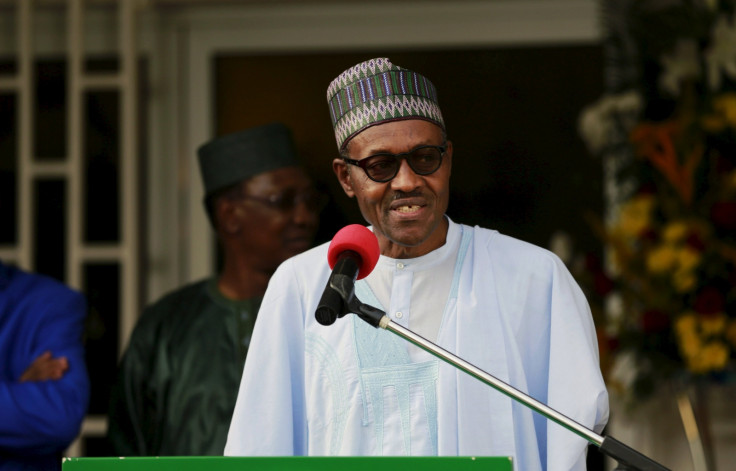Nigeria social media bill lambasted by journalists: This is not Italy under Mussolini

The Nigerian senate has come under fire in recent weeks as it discusses a bill seen by many as a way to curb freedom of speech, particularly on social media. The Act to Prohibit Frivolous Petitions and other Matters Connected Therewith, sponsored by Senator Bala Ibn Na'Allah, passed a second reading at the senate earlier in December.
If the bill becomes law, people who "intentionally propagate false information that could threaten the security of the country or that is capable of inciting the general public against the government through electronic message" could be jailed for up to seven years and fined up to five million Naira ($25,000; £16,000).
Nigerian citizens have taken to social media to vent their anger over the bill under the hashtag #NoToSocialMediaBill. They argued that such a law would punish critics of the government and lawmakers, frequently attacked by the public for their high salaries, perceived lavish lifestyles and their involvement in corruption scandals.
However, Na'allah defended the draft law arguing it would stop spurious petitions against officials. He added the bill would ensure petitions are accompanied by affidavits from the High Court of a state or the Federal High Court.
IBTimesUK has contacted journalists and bloggers who work in Nigeria to find out what they thought about the bill.
Simon Ateba, a Lagos-based investigative journalist, political blogger and publisher of popular online newspaper simonateba.com, thinks the bill aims to stop attacks and blackmailing of public officials without evidence "only on the surface".
He believes that senators do not like the fact that Nigerians have been increasingly using social media to exercise their freedom of speech. He said: "The traditional media industry is riddled with corruption, and many publishers have connived with government officials to protect them and feed the public with lies.
"Social media seem to be the only platform where you can read the truth about theft and gargantuan corruption, and where crooks can be exposed. This is a dangerous, awful, dreadful bill from insincere and corrupt politicians who seek to protect themselves against social media scrutiny."
Olayemi Akande, a prominent Nigerian blogger based in Lagos, believes senators are giving space to discussions on this bill while neglecting more pressing issues. She told IBTimesUK: "I feel many of those senators clamouring for the bill have been featured in news on social media which did not go down well with them. They are basically in support of the bill because of themselves not necessarily because it is in the interest of the nation. There are many other important bills they can debate upon while seated than wasting taxpayers' money."
Ohimai Godwin Amaize, CEO of Olivier Pope Inc and publisher at Signal, also believes the bill is not a priority for the senate. He told IBTimes UK: "Have there been cases of abuse and irresponsibility in the use of social media? Yes. But there are existing laws on defamation that can address these concerns and can be reviewed or strengthened."
He added: "Politicians are abused everywhere in the world. Obama is lampooned and caricatured in the social media, the Queen of England is the subject of parodies and several forms of social media mischief. Our politicians in Nigeria should wake up to the reality of a democratic society. This is not Italy under Mussolini. This is not Uganda under Idi Amin. People must be allowed to speak freely.
"Under the immediate past administration of former President Goodluck Jonathan people could speak freely and journalists were free to report news without fear or threats of harassment. But under the current administration of Buhari, it appears the democratic gains of our recent past are being reversed."
Politicians are abused everywhere in the world and our politicians in Nigeria should wake up to the reality of a democratic society. This is not Italy under Mussolini.
Buhari 'behind the bill'
President Muhammadu Buhari has reassured that the senate is democratic and would not publish anything that goes against the constitution. His assistant on media and publicity, Garba Shehu, said in a statement that Buhari "has reiterated the commitment of his administration to the protection of free speech in keeping with democratic tradition. But he is not averse to lawful regulation, so long as that is done within the ambit of the constitution which he swore to uphold".
However, Aziza Uko – Executive Editor of The Trent Online – believes Buhari is behind the draft law. She told IBTimesUK: "It is being suggested in political circles that Na'Allah is being instructed by Buhari to put forward the bill, which Buhari did not expressly condemn."
Douglas alleges that the draft law echoes the infamous Protection Against False Accusations Decree, also known as Decree 4, promulgated during Buhari's military rule in 1984. According to this decree – considered by many as one of the most repressive laws against freedom of speech ever passed in Nigeria – people found guilty of disseminating false information risked a fine of no less than 10,000 Naira and imprisonment for up to two years. Buhari has defended the decree, denying it was used to gag the press.
Douglas added that since Buhari took office in May, journalists have had limited access to information on terror attacks in the country. "Nobody gets to see the extent of carnage caused by terrorists, nobody has access to undiluted information on the number of victims or injured," she said.
"Journalists are arrested by soldiers, the phones and cameras are confiscated and all photos and videos deleted. Sometimes, their equipment are never returned to them."
IBTimesUK contacted Shehu for a government reaction to the criticisms. He denied Buhari was behind the bill and referred to an earlier statement released in December. He refused to comment further.
Nigeria up close: Check out our Flipboard magazine
© Copyright IBTimes 2024. All rights reserved.






